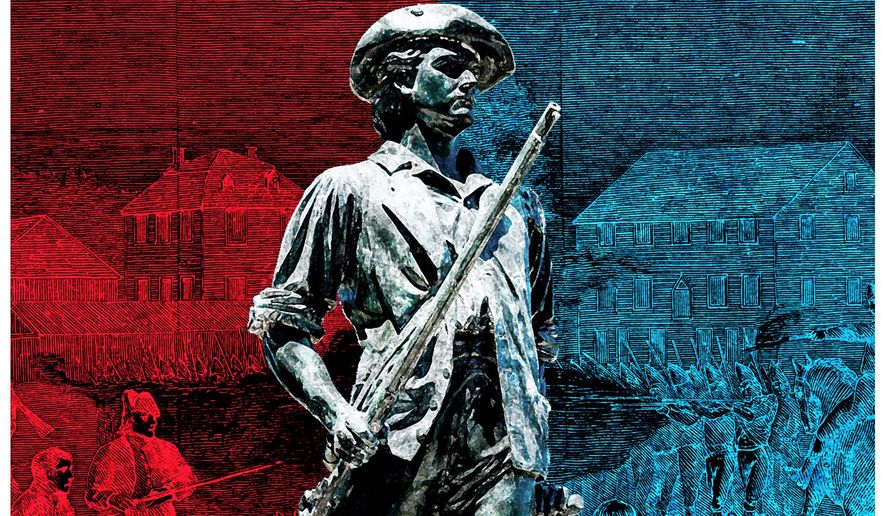OPINION:
On a cold spring morning, 246 years and a few days ago, a military force duly empowered by the rulers of the nation scoured the countryside for weapons, fully intending to seize those weapons that they believed — perhaps rightly — were going to be used in hostile activities directed at the rulers.
Around 5 a.m., the military force encountered about 80 armed civilians in the center of a town about 10 miles from their base.
They ordered them to drop their weapons and disperse. The civilians hesitated, shots were fired, and eight of the civilians — countrymen of the soldiers and marines who fired upon them — were dead.
Seven of these eight men — John Brown, Samuel Hadley, Caleb Harrington, Robert Munroe, Isaac Muzzy, Jonas Parker and Asahel Porter — were killed on Lexington Green the morning of April 19, 1775. Jonathan Harrington was fatally wounded on the Green but managed to crawl a few hundred feet and died at the front door of his house.
In the wake of the morning combat on Lexington Green, that afternoon the “shot heard round the world” was fired by Americans at the British regulars at the Concord North Bridge. Two of the Minutemen, Abner Hosmer and Capt. Isaac Davis, in the center of the line behind the bridge were cut down and killed instantly and four were wounded (including the fifer).
The most intense fighting took place later that day on the road from Concord back to Boston. At the end of the day, the colonists got the better of it. The British suffered 73 dead and 174 wounded. The colonists suffered 50 dead and 39 wounded.
On Monday, we commemorated (or should have commemorated) the 246th anniversary of Lexington and Concord, the initial battles of the American Revolution. It is both telling and important to remember that the war started specifically in response to a military raid by the British designed to seize weapons held lawfully by the colonists.
It is also important to remember that the soldiers and Royal Marines doing the killing at Lexington and Concord were subjects of the same crown and part of the same country as those they killed. They spoke the same language, observed the same laws, were of the same religion, and followed the same monarch as the colonists they wounded and killed.
If you imagine that wars for liberation happen in far-off places and involve people who are different from one another, you should visit Lexington Green. It is a small, unremarkable place. But it was on this sacred ground that America really began, in the unwillingness of Minutemen to yield when commanded, in their efforts to resist what they thought were the tyrannical impulses of a faraway, indifferent government.
It is not accidental that the Revolution began as a struggle between the central government and decentralized and largely disorganized citizenry — a citizenry fully aware of its rights as Englishmen. Rights to trial by jury, to cross-examine witnesses, to be safe in their persons and possessions, to possess weapons for protection.
It is not accidental that the seizure of weapons — the means of protecting oneself and one’s rights — was central to the start of the war.
It is not accidental that the government forces and the revolutionary forces sprang from the same civilization. There are those who love freedom. There are those who prefer hierarchy and authority. We look the same and speak the same language. But we are not the same.
So it was in 1775. If you love America, and you have a moment today, remember the men at Lexington and Concord. Their bravery, and their unwillingness to do what they were told by a government they considered too acquisitive, too aggressive, too malleable with respect to the defense of fundamental rights made our country, and all the great things it has achieved, possible.
• Michael McKenna, a columnist for The Washington Times, is the president of MWR Strategies. He was most recently a deputy assistant to President Trump and deputy director of the Office of Legislative Affairs at the White House.




Please read our comment policy before commenting.